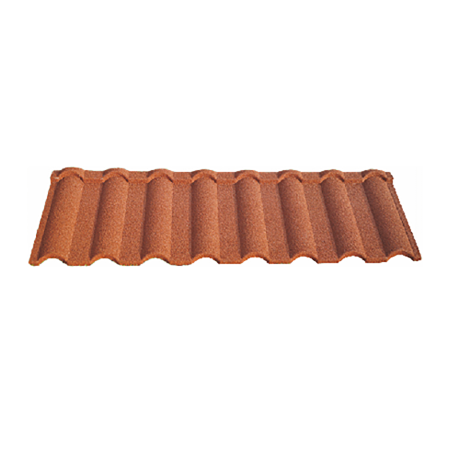
Dec . 30, 2024 00:53 Back to list
how long will a steel roof last
How Long Will a Steel Roof Last?
When considering roofing options for a new home or re-roofing an existing one, longevity is often a primary concern. A steel roof is increasingly becoming a popular choice due to its durability, cost-effectiveness, and aesthetic appeal. Understanding how long a steel roof will last is essential for homeowners looking to make a long-term investment in their property.
Durability and Lifespan
One of the standout features of steel roofing is its impressive lifespan. A well-installed steel roof can last between 40 to 70 years, depending on various factors including the type of steel used, the installation process, maintenance, and environmental conditions. This is significantly longer than traditional roofing materials such as asphalt shingles, which typically need to be replaced every 15 to 30 years.
Steel roofs are highly resistant to a variety of weather conditions. They can withstand extreme high and low temperatures, heavy rain, and even hail without significant damage. Additionally, they are fire-resistant, making them a safe option in areas prone to wildfires. This durability contributes to their long lifespan and minimizes the need for frequent repairs or replacement.
Types of Steel Roofing
There are primarily two types of steel roofing available in the market galvanized steel and galvalume steel. Galvanized steel is coated with a layer of zinc, which acts as a barrier against corrosion. Galvalume steel, on the other hand, features a coating of aluminum-zinc alloy, providing enhanced corrosion resistance and UV protection. The choice between these two types can affect the lifespan of the roof, with galvalume often offering superior longevity and performance.
Installation Quality
how long will a steel roof last

The lifespan of a steel roof is heavily influenced by the quality of its installation. A poorly installed roof can lead to issues such as leaks, improper ventilation, or reduced structural integrity, ultimately shortening its lifespan. It is essential to hire experienced professionals who adhere to best practices during installation. Ensuring that the roof is properly sealed, flashed, and ventilated can prolong its lifespan significantly.
Maintenance Matters
While steel roofs require less maintenance than traditional roofing options, regular upkeep can greatly enhance their longevity. Homeowners should inspect their steel roofs periodically for rust, dents, or damage from debris. Cleaning the roof to remove dirt, leaves, and other materials can also prevent problems related to water buildup and corrosion. Applying a protective coating every few years can add an extra layer of defense against the elements.
Environmental Factors
The environment in which a steel roof is located plays a crucial role in determining its lifespan. In coastal areas, for example, exposure to salty air can accelerate corrosion. In regions with significant snowfall, the weight of the snow can affect structural aspects if not properly addressed. Homeowners should consider local climate conditions, and in some cases, opt for specialized coatings designed to mitigate environmental impacts.
Conclusion
In summary, a steel roof can last anywhere from 40 to 70 years, with several factors influencing its overall lifespan. The type of steel, quality of installation, regular maintenance, and environmental conditions all play critical roles. For homeowners looking for a durable, long-lasting roofing solution, steel roofing is an excellent choice. Not only does it offer longevity and low maintenance, but it also adds to the aesthetic value of a home. Investing in a steel roof can ultimately provide peace of mind and significant savings over time, making it a worthwhile consideration for any homeowner.
-
Small Clay Roof Tiles for Durable & Stylish Roofing Red & Custom Options Available
NewsJun.24,2025
-
Lifetime Roof Shingles – Durable Roofing Solutions for Decades
NewsJun.10,2025
-
Top Roofing Shingles Types Compare Different Types of Architectural Roofing Shingles for Your Home
NewsJun.10,2025
-
Affordable Asphalt Shingle Roll Durable & Easy Flat Roof Solution
NewsJun.09,2025
-
Metal Asphalt Look Roofing Durable Shingle-Style Options
NewsJun.09,2025
-
Premium Clay Valley Roof Tiles Durable & Eco-Friendly
NewsJun.09,2025







